rfid
Latest
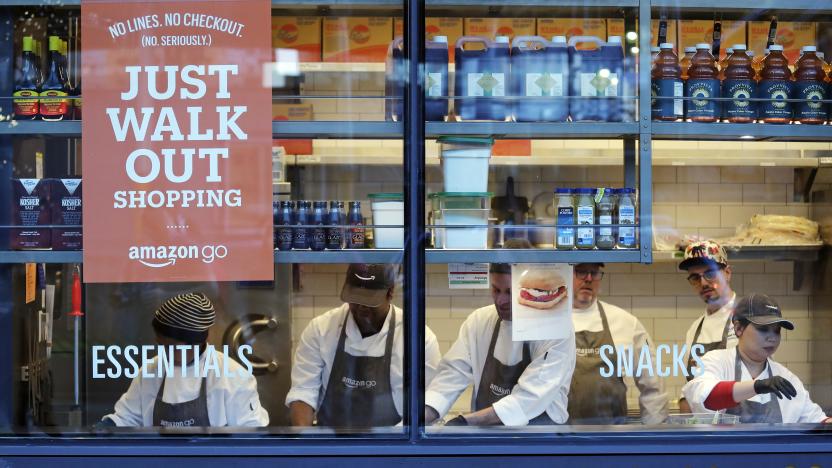
Amazon adds RFID support to Just Walk Out stores for 'softline' products like clothing
The technology is rolling out in select sports stadiums.
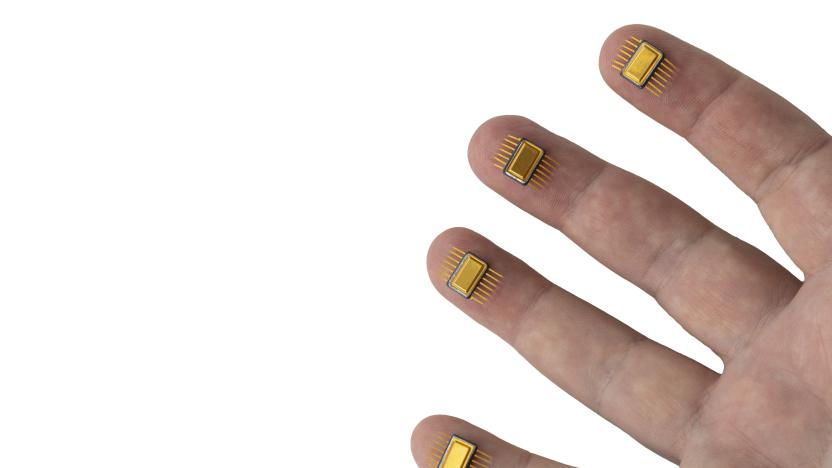
Chip implants get under your skin so you can leave your keys at home
Software engineer Miana Windall has about 25 implants under her skin, ranging from magnets to RFID tech. While that might make your skin crawl if you’re squeamish, “for the most part, they’re not really noticeable,” she told Engadget.
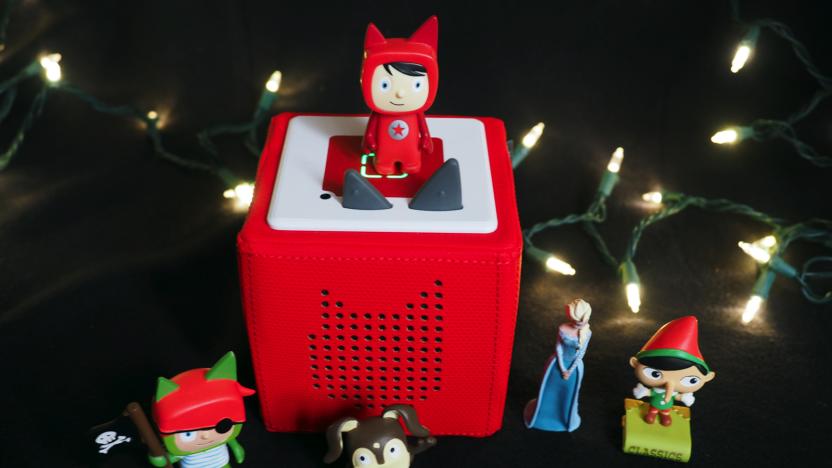
Tonies is a connected speaker for kids with Amiibo-like figurines
Tonies are cute figurines that activate music and stories when placed on the Toniebox connected speaker.
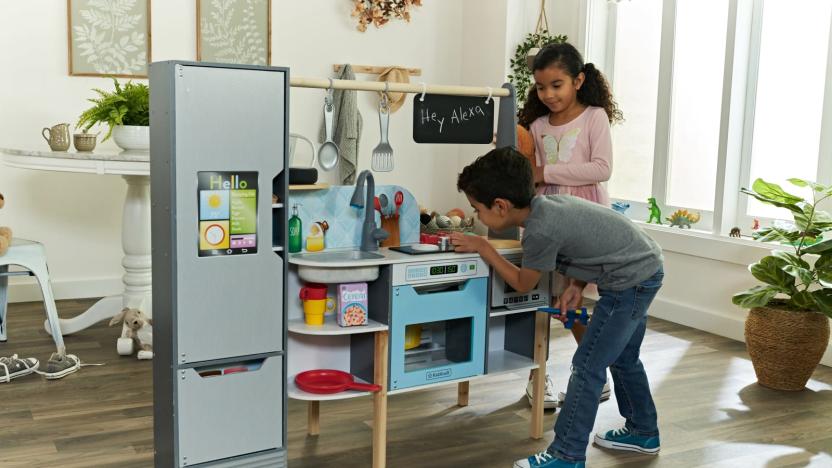
For $300, you can get an Alexa-powered kitchen for your kids
Alexa and other smart speakers can be especially useful in the kitchen, and toymakers are taking note. Today, KidKraft revealed its Alexa 2-in-1 Kitchen and Market. At first glance, it looks like your average play kitchen, but it comes with smart-chipped food, cookware and character cards that prompt a response from Alexa.

Sticker sensor monitors your body using wireless power
Wearable body sensors have a common problem: they need power and antennas, and all that equipment leads to bulky devices that influence your behavior. Stanford researchers, however, have developed a system that could be almost imperceptible. Their BodyNet sticker sensor gathers power and transmits data using an RFID connection to a receiver on nearby clothing, making the sensor itself about as comfortable and flexible as an adhesive bandage. It measures subtle changes in skin that provide a wealth of data for the body, whether it's your heartbeat, breathing rate or muscle activity.
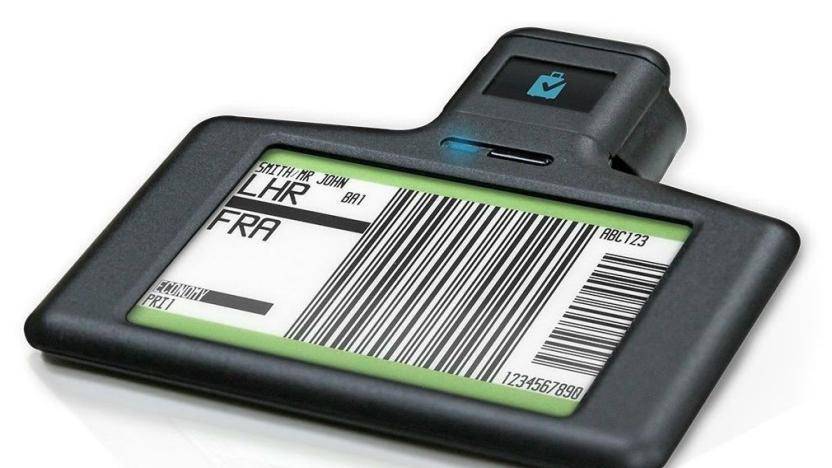
British Airways will let you track your luggage with RFID tags
Checking in your bags will soon be easier than ever. British Airways will be the next major airline to roll out RFID luggage tracking for its passengers. Travelers with a ViewTag can tag their bags before even arriving at the airport. After checking-in with BA's mobile app, you'll be able to sync your flight information to your bag with your smartphone. British Airways passengers can pre-order their RFID luggage tags directly from the airline, which are available at the introductory price of £63 (roughly $80). The reusable bag tags are equipped with Bluetooth Low Energy and an E Ink display that shows your flight information. Each tag is rated for over 3,000 screen changes and doesn't need to be recharged. At present, the tags can only be used on direct flights.

MIT developed a new system to help robots track objects
Researchers at the Massachusetts Institute of Technology have developed a new system that will either improve the quality and accuracy of robotics or lead to humanity's inevitable demise at the hands of mechanical overlords. Using RFID tags, the researchers were able to make robots more efficient and accurate when tracking moving objects. The development carries major implications for the future of drones, manufacturing robots and many other applications.
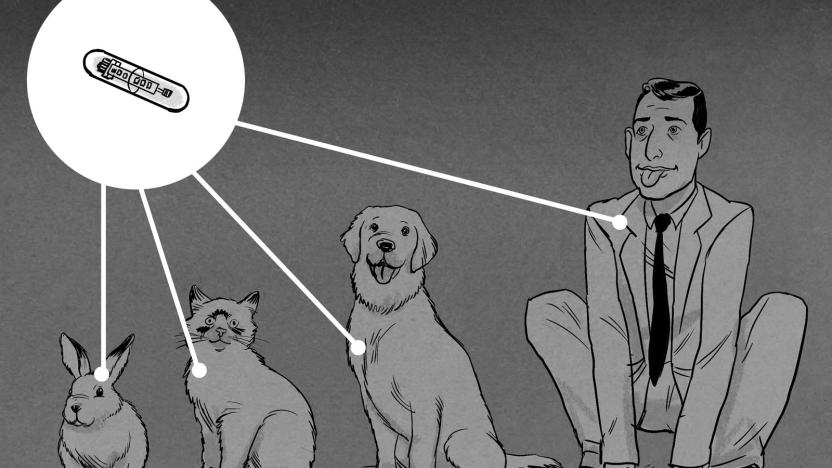
More companies are chipping their workers like pets
The trend of blundering into the void of adopting new tech, damn the consequences, full speed ahead, continues this week. The Telegraph tells us about "a number of UK legal and financial firms" are in talks with a chip company to implant their employees with RFID microchips for security purposes.
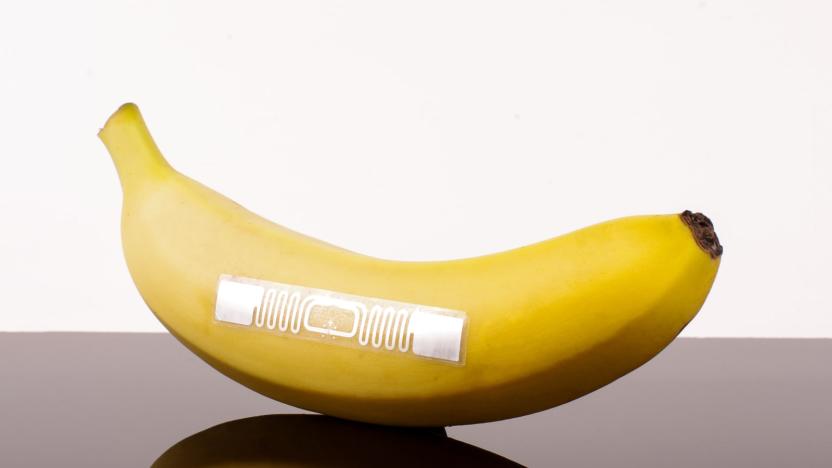
Everyday RFID tags could help spot food contamination
You might not need special sensors or old-fashioned inspections to tell whether food has gone bad. If MIT has its way, the tags you already find on your food might do the job. Its researchers have developed a wireless system, RFIQ, that detects potential food contamination based on minute changes in the signals emanating from the RFID tags you often see on containers. As different materials absorb different amounts of the tags' electromagnetic frequencies, you can use a reader to spot changes in response signals and identify food contamination. If a foodstuff dries out, for instance, you'd notice a different signal than when it was still moist.

The Decode app spots fakes with NFC
The global trade of counterfeit goods reportedly rakes in half a trillion dollars per year, which isn't good for anyone. (Except for the counterfeiters themselves, I suppose.) As the fakes industry continues to grow, brands are looking to technologies like RFID (radio-frequency identification) and NFC (near-field communication) to help authenticate their products. This is where Blue Bite, a startup based out of New York City, hopes to come in. It has developed a system that relies on an iOS app, called Decode, that can tell consumers if an item is real by simply tapping their phone on it.

MIT engineers give RFID tags chemical-sensing capabilities
Engineering specialists from MIT have devised a way to make RFID (radio-frequency identification) tags more reliable and pick up on chemicals in the surrounding environment -- without needing the typical battery.

China will start using car surveillance system in July, says WSJ
China is not holding back on plans to monitor its citizens. Starting on July 1st, when residents register cars, radio-frequency identification (RFID) tags will be attached to windshields to track the vehicles, The Wall Street Journal reports. While car owners won't be forced to add the tags immediately, all new cars will need to have them installed starting next year. Since 30 million vehicles are sold in China annually, the country will soon be able to monitor the locations of a vast swathe of cars under the project.
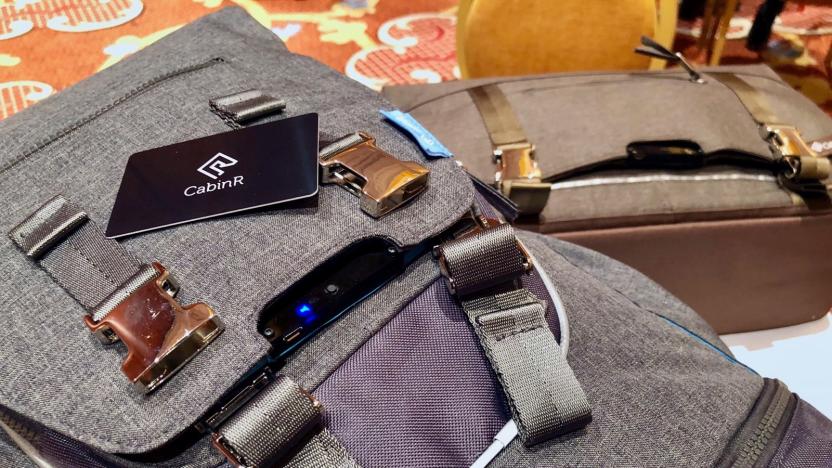
CabinR's travel bags keep thieves away with an annoying alarm
Not everyone is good at keeping track of their personal belongings, like a backpack or a messenger bag. So CabinR, a startup based out of Hong Kong, wants to help you feel safer on a journey. The company has created two bags, a backpack and a messenger model, that feature an alarm system powered by RFID (radio-frequency identification) tags to (hopefully) keep any potential thieves away from your stuff. It works quite simply: On the bag, there's an alarm device that you activate by pressing a button, and the only way to deactivate is by tapping an RFID plastic card on it.
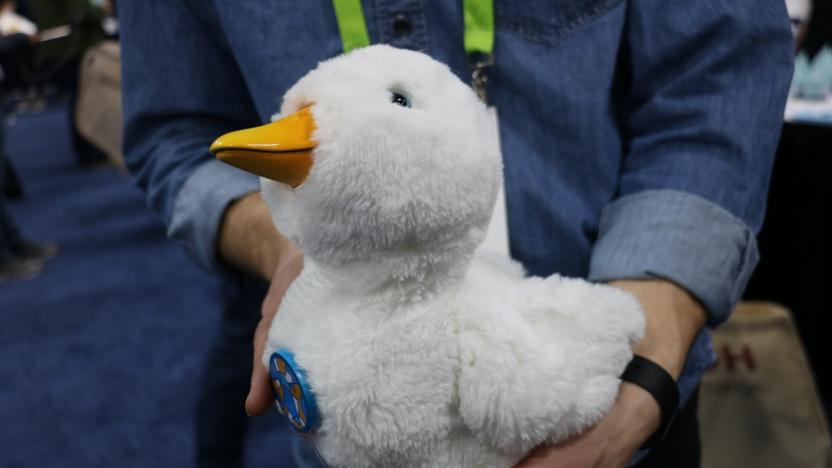
This robot therapy duck comforts kids with cancer
CES is flush with giant TVs, smart fridges and plenty of other superfluous nonsense. So it was a breath of fresh air when insurance company Aflac and a company called Sproutel showed up with a robot duck designed to comfort children with cancer. The My Special Aflac duck is, in many ways, not terribly different from other toy pets like Furby or an Aibo. It's cute, cuddly and packed with sensors that allow it to interact with you. Scratch under its chin and the duck will lift its head and let out an appreciative little quack. Find its ticklish spot under the wing and it'll shake about and erupt in laughter.
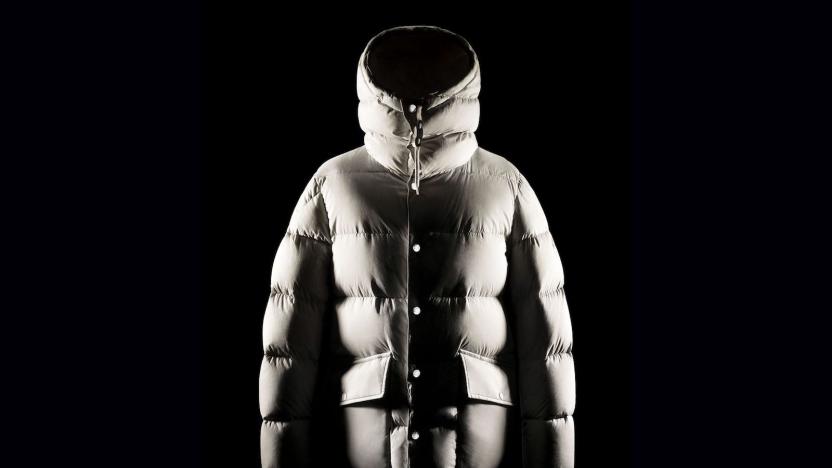
How RFID tags became trendy
As far as wireless technologies go, radio-frequency identification (RFID) is one of the oldest. Patented in 1983 by the late British inventor Charles Walton, RFID made it possible for new, cutting-edge tech such as near-field communication (NFC) to exist. As with NFC, RFID chips are used to store information digitally, which can then be shared between objects through electromagnetic fields and radio waves. It may not be sexy, but companies see real potential in the technology, no matter how old. It's no surprise, then, that over the past few years RFIDs have become ubiquitous in a wide range of industries, including travel, sports and one you wouldn't expect: fashion.

Technology is failing to create transparent supply chains
During the early days of globalization, it was relatively easy for corporations to either hide, or be ignorant of, human rights and environmental atrocities committed along their supply chain. Factories and producers were shifting manufacturing or sourcing of raw materials to an increasingly complex network of suppliers, but there was no incentive to look into how a supplier produced, for example, raw cotton or shoe soles. As long as the price was cheap and the quality was good, companies saw little need to ask further questions. That changed, though, in the early '90s, when nonprofits and journalists began to undercover vast labor and environmental issues connected to suppliers of large corporations, shining a spotlight on the dark side of the global consumer market. This led to the development of an array of supply chain technologies -- RFIDs, remote sensing, satellite monitoring, even blockchain-based tools. Many were marketed as solutions, aimed at making it easier to monitor and respond to human rights and environmental violations along supply chains. The results, however, have been mixed.
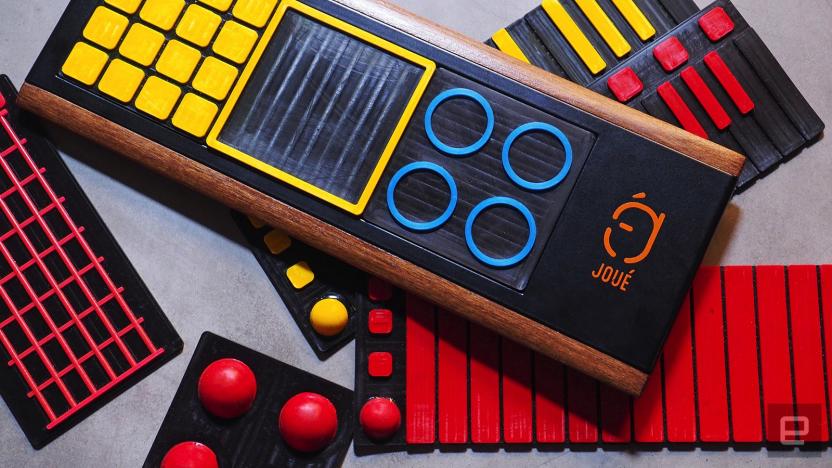
Joué's MIDI controller adds tactile fun to music-making
The Musical Instrument Digital Interface (MIDI) arrived in the '80s to help digital instruments communicate with each other. Nowadays, with much of the action on computers, a new breed of MIDI controllers has emerged. Many of today's designs include built-in pressure sensitivity to provide a semblance of analog expression when played, but Joué is a bit different. It was developed to free digital music artists from the lockstep confines of keyboards, button rows, glowing displays and marching lights, while providing modular flexibility and, above all, fun. The name Joué, translated from French, literally means "play" or can be interpreted as "I play," and the company would like you to approach the device with an open and creative mind. It's a USB-powered pressure-sensitive board that works with a variety of soft -- and occasionally squishy -- pads that are detected and uniquely identified through embedded RFID tags. You map portions of each pad to any MIDI-capable program like Ableton Live, Apple Logic, Garage Band or iPad apps to help bring your music to life. They're swappable on the fly, and the tactile interfaces offer an alternative to high-tech distractions. The device is currently on Kickstarter; the company is raising funds to move from industrial prototype to final product, and as usual, early bird deals are available. You can buy a Joué board and starter pack of pads for just over $300, with the eventual retail price expected to be under $500.

Sony's Project Field brings card games to life
From Skylanders to Amiibo, "Toys to life" have been a pretty lucrative way for video game companies to make money. Sony has been more-or-less absent from the field, but today it's announcing something not too dissimilar: Project Field.

Six gifts for your paranoid friends and family
It pays to be paranoid in a time of rampant breaches, social media account extortion, identity theft, fake security products, ransomware, and hack attacks on all. That's why we've put together a gift guide for those among us who don't want to find out they have a security issue the hard way. Typically that would include things like VPN subscriptions or password manager recommendations, but that's no fun when it comes time for everyone to open their presents. That's why we've selected six sweet gadgets that'll protect the privacy and security of those you care about. Carefully screened to keep out the "security snake oil" products flooding the gadget market, our picks have been selected with a keen eye on things that actually work to fight attacks that actually happen.

Delta's RFID luggage tracking system now includes a map view
Delta's new RFID luggage tags rolled out earlier this year, making it harder for at least one airline to lose your bags. Now, just in time for the holiday travel rush, Delta has already upgraded their baggage tracking system to include a up-to-the-minute map view of a bag's journey.














